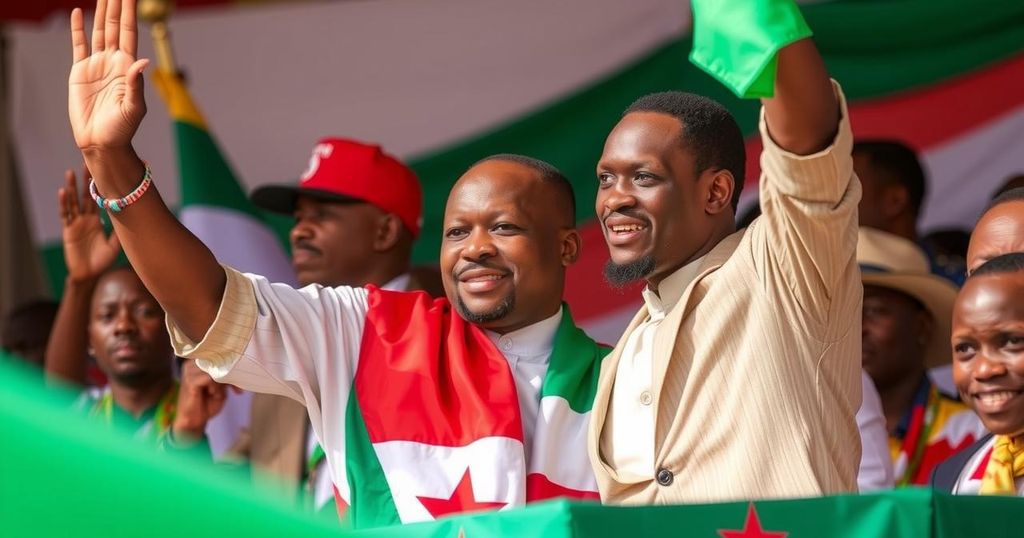World news
AFRICA, AHMED BARTCHIRET, ANGE, ASIA, BURKINA FASO, CHAD, CHINA, DE, DEBY, DEMOCRACY, DEMONSTRATIONS, ELECTIONS, EUROPE, EUROPE/ASIA, FRANCE, GOVERNMENT, MAHA, MALI, NATIONAL ASSEMBLY, NIGER, OPPOSITION, PARIS, PATRIOTIC SALVATION MOVEMENT, REUTERS, RUSSIA, SUCCES MASRA
Daniel O'Connor
0 Comments
Chad’s Ruling Party Achieves Majority in Controversial Elections
Chad’s Patriotic Salvation Movement (MPS) won a majority in the recent parliamentary elections, securing 124 out of 188 seats despite an opposition boycott. The elections, viewed by the government as a step towards democracy, faced criticism for a lack of transparency. President Mahamat Idriss Deby’s regime continues to navigate a complex political landscape marked by unrest and changing international alliances.
Chad’s ruling party, the Patriotic Salvation Movement (MPS), has secured a decisive victory in the parliamentary elections held last month, despite a boycott by opposition parties. The results, announced by the National Elections Management Agency (ANGE), indicate that the MPS won 124 out of 188 seats in the National Assembly, with a reported voter participation rate of 51.56%. President Mahamat Idriss Deby’s administration claims the election represents a crucial step toward democracy, although opposition figures contend it lacked the necessary transparency and credibility.
Furthermore, the election was marred by allegations from opposition leaders, including Succes Masra of the Transformateurs party, who criticized the electoral process as biased and manipulated. While 38 political groups will hold representation in the Assembly, the distribution of seats among non-MPS parties remains ambiguous. Deby has previously faced scrutiny regarding his rise to power, having assumed the presidency under controversial circumstances following the assassination of his father, former President Idriss Deby.
Since his election, President Deby has taken significant political actions, including terminating military cooperation with France and indicating a potential withdrawal from regional security partnerships, mirroring trends in other West African nations increasingly distancing themselves from former colonial powers. Recently, the Chadian government reported thwarting an attempted attack on the presidency, describing it as an effort to undermine stability.
Chad has a tumultuous political history, characterized by instability and conflict. In 2021, President Idriss Deby was killed in combat, leading to his son Mahamat Idriss Deby taking power as interim leader. Since then, the current regime has been navigating the complexities of governance, transitioning from a highly centralized authority toward greater democratic processes while managing significant security challenges. Opposition parties have often alleged that elections in Chad lack fairness, which compounds the difficulty of establishing a stable political climate.
In summary, the recent parliamentary elections in Chad have reinforced the ruling party’s dominance amid boycotts and allegations of electoral malpractice from opposition factions. While the government heralds this as a pivotal moment in the democratic transition, the reality suggests deep divisions and ongoing tensions within the political landscape. The implications of the election results, along with Deby’s subsequent foreign policy shifts, will be critical in shaping Chad’s future trajectory.
Original Source: www.dw.com




Post Comment